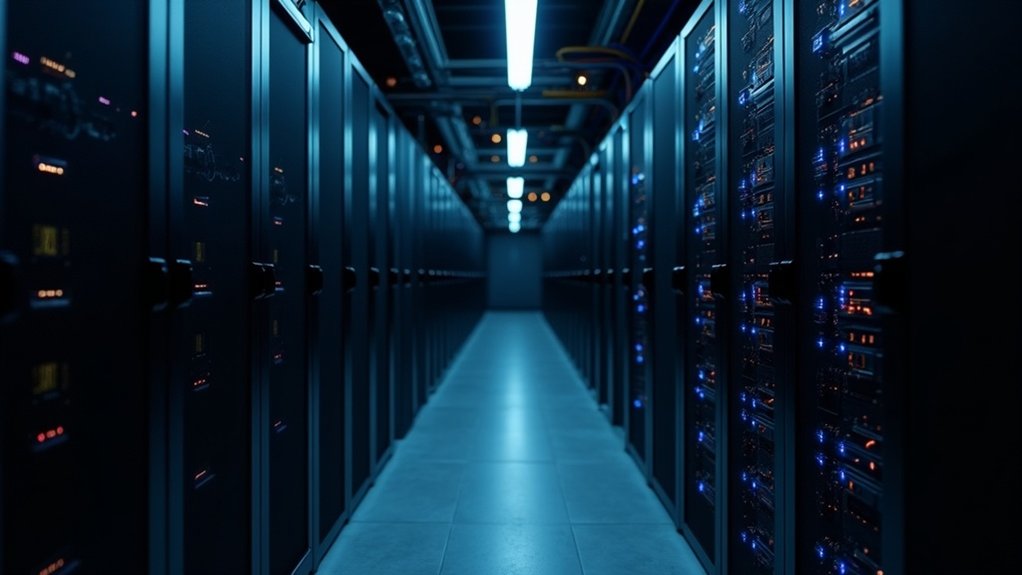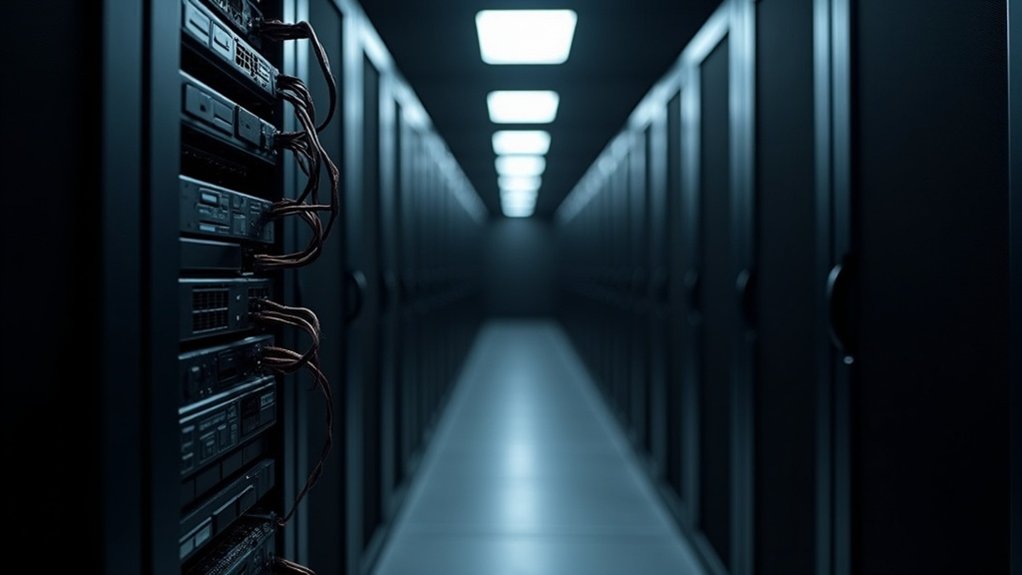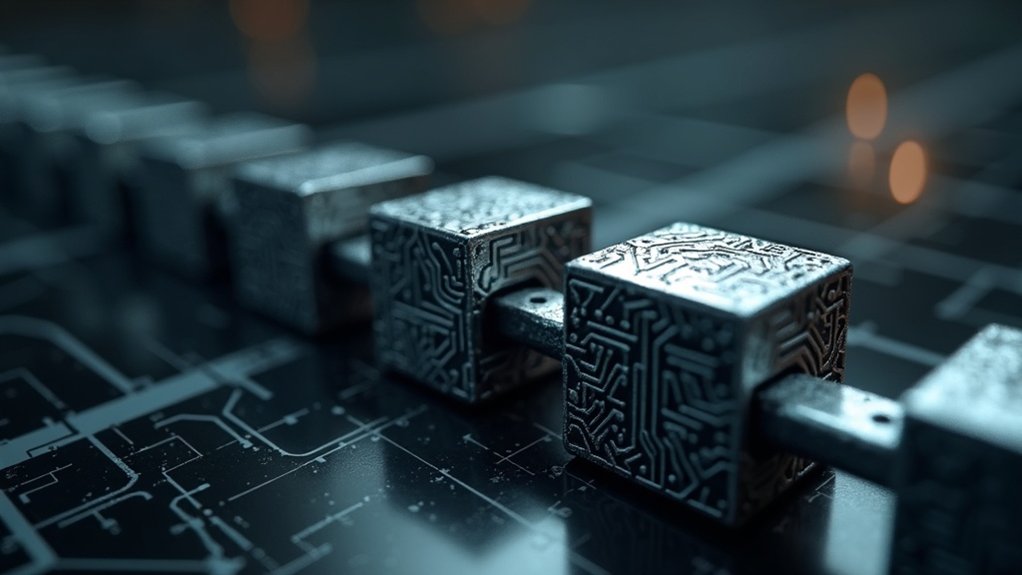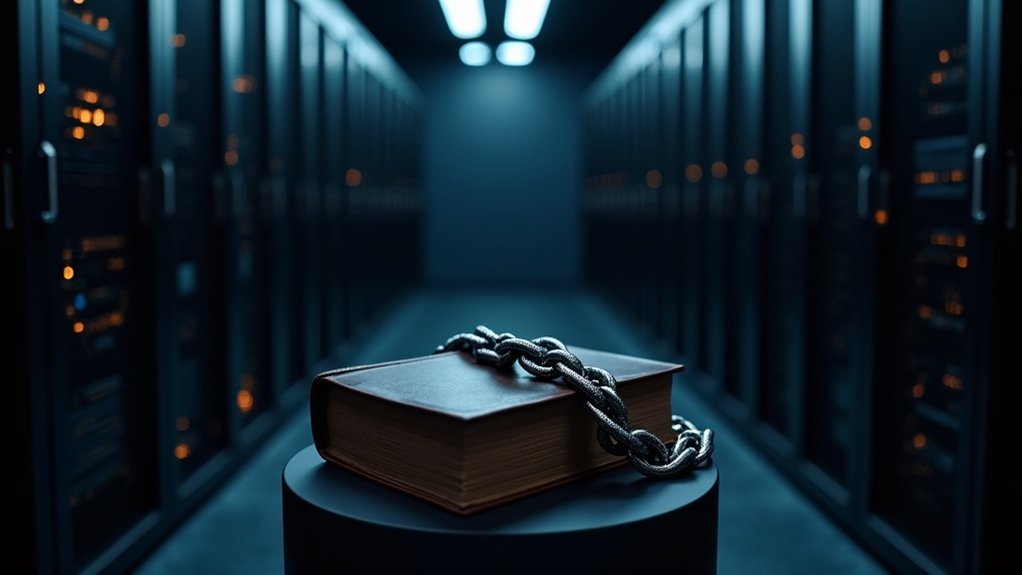Bitcoin nodes and miners serve different functions in the network. Nodes validate transactions and maintain the blockchain—essentially the accountants checking for cheating. Anyone with basic computing resources can run one. Miners, however, are specialized nodes that compete to solve puzzles, creating new blocks and earning bitcoin rewards. They require serious hardware and electricity. Nodes gossip about transactions; miners package them. Both roles keep Bitcoin decentralized, with no bosses needed. The deeper mechanics reveal Bitcoin’s ingenious design.
While Bitcoin continues its rollercoaster journey through financial markets, most people remain clueless about what actually makes this digital currency tick. Behind the headlines and price charts lies a complex ecosystem of nodes and miners—the unsung heroes keeping the whole system running.
Bitcoin nodes are basically computers running software that maintains and validates the entire blockchain. They’re like the accountants of the network, meticulously checking every transaction to guarantee nobody’s cheating. These digital hall monitors verify that bitcoins aren’t being spent twice and that all transactions follow the rules. Not exactly glamorous work, but someone’s gotta do it. Regular nodes support network consensus by validating transactions without earning rewards.
Bitcoin nodes: the world’s most dedicated digital accountants, keeping the whole system honest without a shred of recognition.
Miners, on the other hand, are nodes with extra responsibilities—and potential rewards. They collect validated transactions from their mempool (a fancy word for “waiting room”) and compete to solve mind-numbingly complex puzzles. It’s like thousands of mathematicians racing to solve the same equation, except with specialized computers that consume electricity like there’s no tomorrow. The winner gets to create a new block and pockets some fresh bitcoins as a reward. Nice work if you can get it.
Every node independently validates transactions from the very beginning—yes, all the way back to 2009. Talk about trust issues. They spread new transactions across the network like gossip at a high school reunion. Fast and relentless.
The relationship between miners and nodes is oddly symbiotic. All miners run nodes, but not all nodes are miners. Miners need nodes to tell them which transactions are legit, while nodes need miners to actually produce blocks and secure the network. Neither can exist without the other. The open participation model allows anyone to become a node operator or miner without requiring permission from a central authority. Currently, there are approximately 18,000 public nodes participating in the Bitcoin network as of February 2024, each contributing to its decentralized structure.
Running a node is relatively easy—just some bandwidth and storage space. Mining? That’s another story. It requires serious hardware investment and enough electricity to power a small town. The economics can be brutal. But together, this odd couple maintains Bitcoin’s decentralized nature—no bosses, no central servers, just code and consensus.
Frequently Asked Questions
How Much Energy Do Bitcoin Miners Consume Globally?
Bitcoin miners consume a massive 168 terawatt-hours annually as of mid-2025.
That’s roughly 10 gigawatts of continuous power—the equivalent of what entire countries like Finland or Australia use. It represents up to 0.9% of global electricity consumption.
Pretty wild for a digital currency, right?
The energy needed for a single Bitcoin transaction could power hundreds of thousands of VISA transactions.
And yes, it contributes about 0.7% of global CO₂ emissions. Not exactly eco-friendly.
Can a Regular Computer Run a Bitcoin Node Effectively?
Yes, regular computers can run Bitcoin nodes effectively. Not rocket science.
A decent modern PC with 4GB RAM, 1TB SSD storage, and broadband internet handles it fine. Pruned nodes need even less storage—under 5GB.
The blockchain’s huge though (350GB+), so forget using ancient machines. Internet matters too; you’ll burn through 200GB monthly in uploads.
Nothing fancy needed, but continuous operation works best. No mining capability included, obviously.
What Happens to Miners After All Bitcoins Are Mined?
After all bitcoins are mined (around 2140), miners will rely solely on transaction fees. No more block rewards. Period.
They’ll need to adapt or die – either becoming super efficient or finding cheaper electricity. Some won’t make it. The big operations with deep pockets? They’ll probably survive.
Network security will depend entirely on whether these fees provide enough incentive. Mining economics will change forever. That’s capitalism in the crypto world for you.
How Do Network Attacks Affect Nodes Versus Miners?
Network attacks impact miners and nodes differently.
Miners face economic damage during 51% attacks – honest miners waste resources on invalid chains while attackers can double-spend.
Nodes, meanwhile, follow the “longest chain rule” and unwittingly accept malicious chains. They’re victims, not targets.
Miners can actually execute attacks; nodes just validate.
It’s like miners are the potential criminals, nodes the judges who can’t stop the crime – they just enforce rules after the fact.
Pretty flawed system, honestly.
What Privacy Concerns Exist for Node Operators?
Node operators face serious privacy concerns. Their IP addresses are exposed to peers, making them trackable. Running a node broadcasts your existence to the network. Not pretty.
The blockchain’s public nature doesn’t help either. With clever analysis, transactions can be linked to real identities. Third-party services? Even worse – they see everything.
Some operators use Tor or VPNs to hide, but traffic analysis can still reveal patterns. Full privacy is tough. Really tough.









